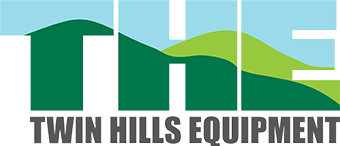Checklist for Prepping Your Baler
 Harvest time is one of celebration, but there’s still plenty of work to be done. You need to harvest hay, wheat, and other crops, and to prepare for that, you’ll want your baler ready to go! We are happy to provide you with a few basic steps to get your baler prepped and in top shape for the first run.
Harvest time is one of celebration, but there’s still plenty of work to be done. You need to harvest hay, wheat, and other crops, and to prepare for that, you’ll want your baler ready to go! We are happy to provide you with a few basic steps to get your baler prepped and in top shape for the first run.
Read the Owner’s Manual
Your first step should always be to consult your owner’s manual. Trying to do maintenance or cleaning without keeping this handy guide in mind can be dangerous and might even slow you down. Your owner’s manual is packed with tips and guidance about the exact model you’re working with, so you know exactly what’s going on. If you can’t find your manual, the manufacturer’s website should have a copy.
Cleaning
Before you start baling, you’ll want to ensure that your machine is as clean as possible. That means removing dust, dirt, or rust that may have collected and built up during the offseason. Giving it a once-over with a hose or brush can also help you examine it for any obvious signs of damage or disrepair.
Lubrication
Anyone with experience with these machines will know that many baler manufacturers recommend lubricating your chain daily while the baler is in use. That also applies before you start using it for the first time to make sure your work goes off without a hitch. It might take a little bit of time to reach all the right spots, but it’ll be worth it, especially if the chain is stiff after sitting still for a while.
Belts and Bearings
It’s also a good idea to perform a thorough inspection inside and out, even beyond what you did while cleaning your baler. We recommend doing this a few times in the weeks leading up to using it to make sure you come at it with fresh eyes and don’t miss anything.
Things to inspect include:
- Fraying or tears in the belt and checking the belt for the right amount of tension, then tightening or loosening it as needed.
- Make sure all the bearings are properly tightened.
- Replace broken or bent teeth and sharpen dull ones.
- Inspect hoses for leaks.
- Check tire psi levels and look for signs of wear and tear or damage.
- Confirm that you have the right twine setup.
For maintenance assistance, or to find a new baler at a great price, be sure to come over to Twin Hills Equipment in Byhalia, MS. We welcome all our patrons visiting us from the greater Memphis, TN, metropolitan region and all of Marshall County, MS.
